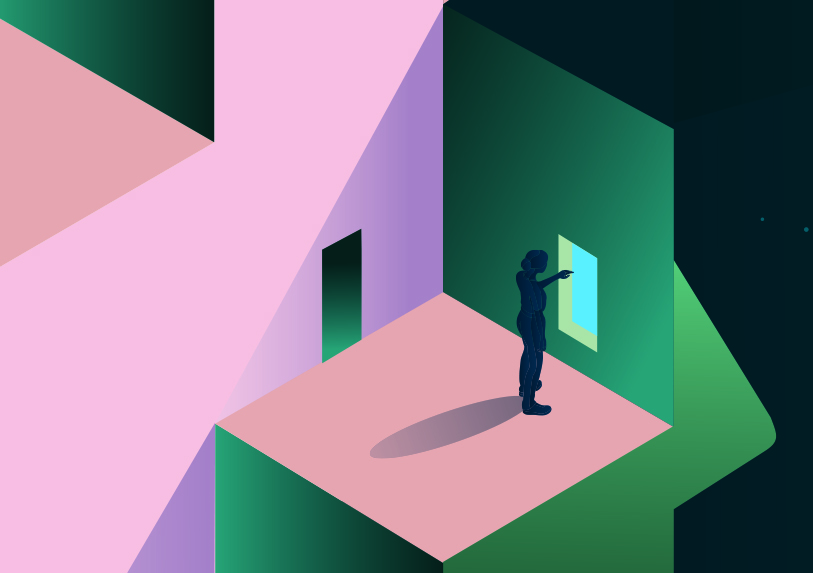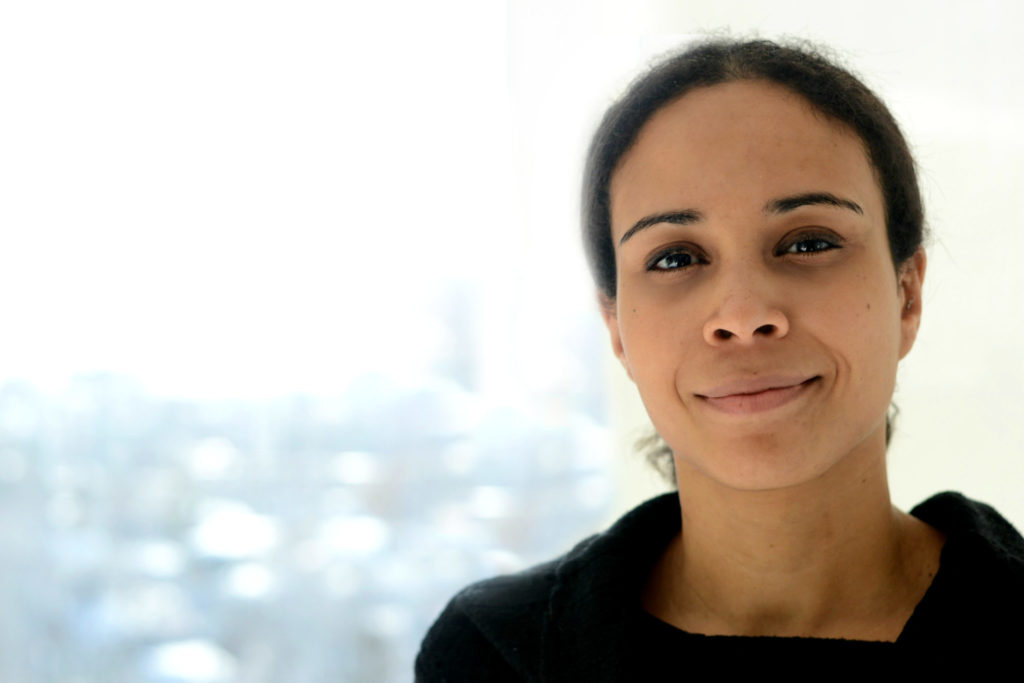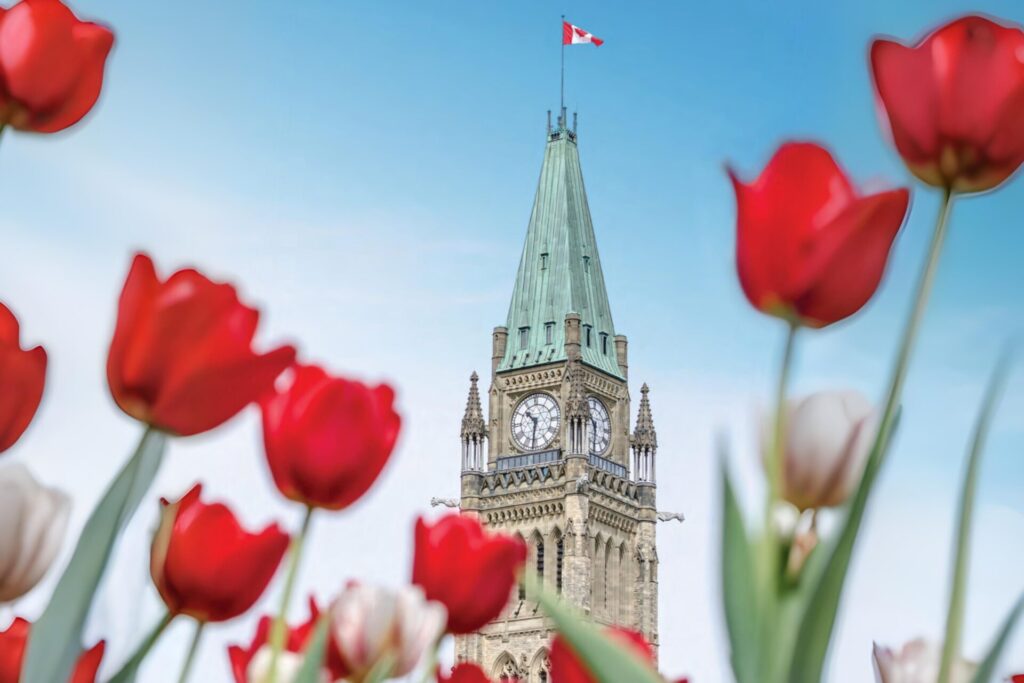Feature: Dr. Rébecca Robillard Uncovers Pandemic’s Impact on Sleep and Mental Health

By Leah Geller
“It’s no longer news that a lot of people are facing collateral effects of the pandemic. What is astonishing is the scale of this phenomenon,” says Dr. Rébecca Robillard, Director of the Clinical Sleep Research Platform at the Royal Ottawa Institute of Mental Health Research, and Assistant Professor at the School of Psychology at the University of Ottawa.
In April 2020, one month into the first wave COVID-19, Dr. Robillard and her team surveyed 5,000 Canadians to see how the pandemic was affecting their sleep and mental health. What they discovered was striking.
“It was a lot more than we expected,” explains Dr. Robillard. “Half of those surveyed showed significant signs of depression, and one in three were experiencing anxiety.”
The pandemic was taking a serious toll on Canadians’ mental health, including those with no history of mental illness. For individuals with prior mental health challenges, symptoms were getting worse, in part because the pandemic was limiting access to care.
Dr. Robillard also looked at the impact of the pandemic on people’s sleep, and the numbers were remarkably similar, with close to half of those surveyed suffering from insomnia. She was especially surprised to see how differently sleep was disrupted in participants, with some struggling to fall asleep, some failing to maintain sleep and others waking too early. Some participants even found their sleep improving, possibly because they no longer had to get up early to commute.
More predictable were the kinds of people most negatively affected.
According to Dr. Robillard, “Three important factors for disrupted sleep were being female, actively working, and having underage children at home. What emerges is the image of the young woman who is trying to pull everything together over a sustained period of time. They’re confined at home, managing work and family responsibilities, often with less support from extended families.”
“Add to that the added burden of worrying about the well-being of kids and parents. Our survey showed that people’s number one concern – above worries of dying from the pandemic or accessing medical care – was how their family would cope.”
Dr. Robillard is quick to point out that sleep is essential to everyone’s mental health, and if it is disrupted, it can fuel a cascade of negative outcomes.
“When we have sleep problems, we experience more fragile mental health, and vice versa. Poor mental health disrupts our sleep, and so it becomes a vicious cycle,” she explains.
“What we’re going through now highlights this phenomenon on a very large scale. We’re seeing a very strong correlation between sleep disturbances with mental health challenges such as anxiety and depression.
The situation is difficult, unusual and unprecedented, but it is also an opportunity to demonstrate how sleep can be a good ally to improving mental health.”
Half of those surveyed showed significant signs of depression, and one in three were experiencing anxiety
Dr. Robillard has always been interested in understanding and helping people, and is especially fascinated with sleep and how it can be used to foster better mental health. She has been recognized widely for her achievements in sleep research, receiving the New Investigator Award of the Australasian Sleep Association, the Young Investigator Inspiration Award of the Royal Ottawa Mental Health Centre, and the Emerging Research Innovators in Mental Health award.
“Sleep is such a mysterious state and there is still so much we don’t understand. We do know that we can use sleep as a therapeutic target and stop that vicious spiral which worsens mental disorders,” she explains. “I’ve seen how someone with years of depression can come into the sleep lab and, voila, they get better. When a patient is well-slept, they are also better equipped to pursue therapy and other means of improving their lives.”
For now, Dr. Robillard is continuing her study on the impacts of the pandemic on sleep and mental health, following up on the original participants to see how things are evolving over time. Early observations show that while levels of anxiety are starting to go down, depression continues to increase.
According to Dr. Robillard, “This makes sense according to how humans fare in sustained stressful situations. To some degree, we can adapt to it, but if stress levels remain fairly high for a long time, depression can kick in and become more chronic. The pandemic is a very unusual situation that is long-lasting.”
She is also hoping to recruit new participants, to evaluate the impact of the second and third waves on Canadians. In the meantime, Dr. Robillard encourages everyone to take good care of themselves and to address any mental health issues before they become chronic.
“Efforts to stay connected with each other (even virtually), stay active, eat well and manage our sleep are now more important than ever,” she emphasizes. “If we protect our sleep, we are better equipped to face the challenges of our wake life, including the one we are facing today.”
If you would like to participate, you can complete this survey here: www.theroyal.ca/COVID19survey
Leah Geller is a health and science writer based in Ottawa.























